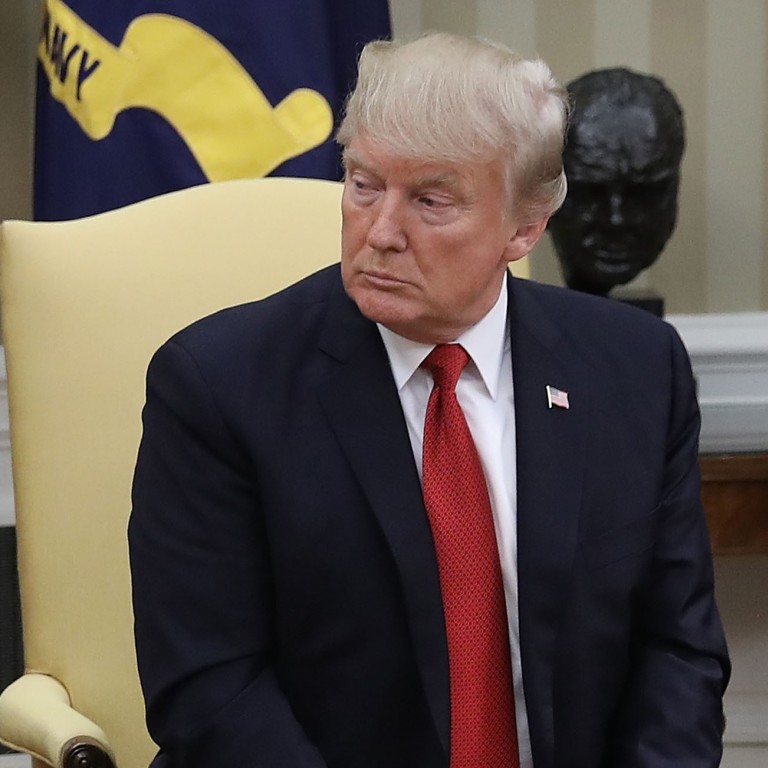
Fed up with India’s high tariffs, Donald Trump says he plans to end its preferential trade treatment
- The US president, who has vowed to reduce trade deficits, has repeatedly called out India for its high tariffs
- The US goods and services trade deficit with India was US$27.3 billion in 2017, according to official figures
Commerce Secretary Anup Wadhawan said the withdrawal of the Generalised System of Preferences (GSP) for Indian products would have limited impact. The two countries had been working on a trade package to address each other’s concerns, he said.
Under the GSP programme, India exports US$5.6 billion worth of goods to the US duty free.
Trump, who has vowed to reduce US trade deficits, has repeatedly called out India for its high tariffs.
Why Trump’s visa plans mean desperate housewives in India
“After intensive engagement between the United States and the Government of India, I have determined that India has not assured the United States that it will provide equitable and reasonable access to the markets of India,” Trump said in a letter to congressional leaders.
The US Trade Representative’s Office (USTR) said removing India from the GSP programme would not take effect for at least 60 days after notifications to Congress and the Indian government, and it will be enacted by a presidential proclamation.
The US goods and services trade deficit with India was US$27.3 billion in 2017, said the USTR.
If Asia is tired of ‘Emperor Xi’, it must get its head around India
Earlier on Tuesday, a government source disputed the USTR’s figures, saying that “actual benefit” to India amounted only to US$250 million a year.
“GSP is more symbolic of the strategic relationship not in value terms,” the source said, declining to be named ahead of a press briefing by the Indian trade ministry.
India is the world’s largest beneficiary of the GSP programme and ending its participation would be the strongest punitive action against India since Trump took office in 2017.
The US said in April it would review India’s eligibility for the programme after some US companies said dairy and medical devices shipments to India were being hurt by non-tariff barriers.
Trade ties took a beating in December after India unveiled new rules on e-commerce that restrict the way Amazon and Walmart-backed Flipkart do business.
The e-commerce rules followed a drive by New Delhi to impose higher tariffs on electronic products and smartphones, and to force global card payments companies such as Mastercard and Visa to move their data to India.
Trump’s decision comes at a difficult time for India’s prime minister, Narendra Modi. He faces a general election in a few weeks even as the longstanding animosity between India and Pakistan has escalated into violent clashes that could lead to all-out war.
Additional reporting by Bloomberg

